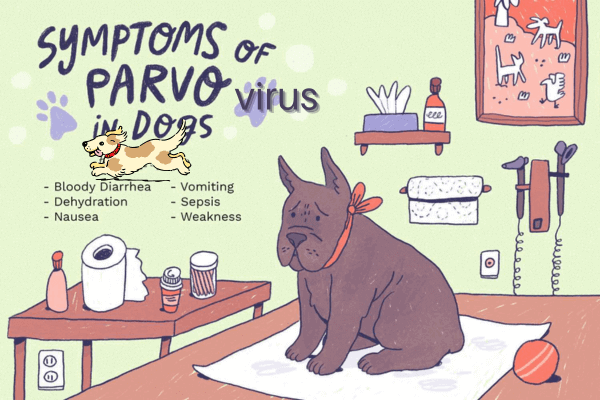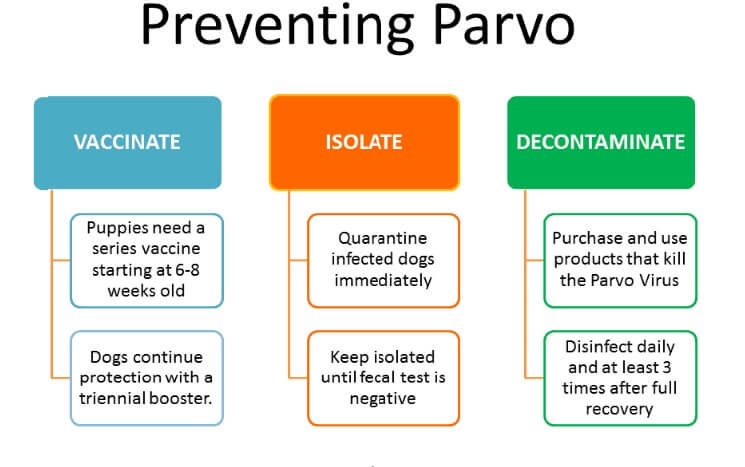One of the concerns that dog owners may have been whether humans get parvo from dogs. Parvovirus, also known as canine parvovirus or CPV, is a highly contagious viral infection that primarily affects dogs, especially puppies. It can cause severe gastrointestinal symptoms and potentially be fatal if not treated promptly.
In light of this concern, it is important to explore the potential for parvovirus transmission from dogs to humans.
This article aims to provide an objective analysis regarding the possibility of humans contracting canine parvovirus. By examining available scientific evidence and expert opinions, we will delve into the topic to determine whether transmission between species is possible and what measures can be taken to prevent such transmission.
Understanding the risks associated with transmission not only serves to protect human health but also contributes to promoting responsible pet ownership and ensuring the well-being of both animals and their human companions.
Key Takeaways
- Parvovirus primarily affects dogs and is highly contagious, especially among puppies.
- Human contraction of parvovirus from dogs is extremely rare, and the main transmission route in dogs is contact with infected feces or contaminated objects.
- Symptoms in humans may include fever, fatigue, headache, and rash, with severe cases potentially causing anemia and complications affecting the heart or nervous system.
- Vaccinating dogs reduces the risk of transmission to humans, and adhering to good hygiene practices such as thorough handwashing and disinfection can help prevent transmission.
Parvovirus from Dogs and its Impact
Parvovirus has a significant impact on dogs, particularly puppies, and understanding its characteristics and transmission is crucial in managing the disease effectively.
It is highly contagious and can be transmitted through direct contact with infected animals or their feces.

Puppies are more susceptible to the virus due to their immature immune systems.
The impact on puppies can be severe, leading to symptoms such as vomiting, diarrhea (often bloody), lethargy, and dehydration.
Without prompt treatment, the mortality rate can be high.
Treatment options include aggressive supportive care to combat dehydration and secondary infections, intravenous fluids to maintain hydration levels, anti-emetics to control vomiting, and antibiotics to prevent bacterial infections.
Veterinary intervention is crucial in providing appropriate care and increasing survival rates for affected dogs.
Can Humans Contract Parvovirus from Dogs?
Contracting Parvovirus is a concern for individuals who come into close contact with infected animals. While primarily affects dogs, there is limited evidence to suggest that humans can contract the virus from their canine companions. Known as zoonotic transmission, the potential to cross species barriers and infect humans is still not fully understood.

However, it is important to note that cases of human infection are extremely rare. The main route of transmission in dogs is through direct contact with infected feces or contaminated objects. It is crucial for individuals to practice good hygiene when handling dogs with suspected or confirmed Parvovirus from dogs infection. This includes washing hands thoroughly with soap and water after any interaction and avoiding contact with surfaces that may be contaminated.
| Zoonotic Potential | Transmission Routes |
|---|---|
| Limited | Fecal-oral |
| Contaminated objects |
Can Humans Get Parvo from Dogs and their Symptoms?
Symptoms of infection in humans can lead to significant health concerns, highlighting the importance of understanding and preventing potential transmission pathways. Parvoviruses are a group of viruses that affect animals, including dogs, and can also be transmitted to humans.

While parvovirus infections in humans are rare, they can occur through close contact with infected animals or their feces.
The symptoms of parvovirus infection in humans may include:
- Fever
- Fatigue
- Headache
- Rash on the face and trunk
In severe cases, it can cause:
- Anemia
- Complications affecting the heart or nervous system
It is important for individuals who come into contact with animals infected with to practice good hygiene measures such as washing hands thoroughly after handling animals or cleaning up their feces. This helps prevent the spread of zoonotic diseases like Parvo from dogs to humans.
Preventing Parvovirus Transmission

Preventing transmission requires implementing effective hygiene practices and maintaining a clean environment. One crucial aspect is the importance of vaccination. Vaccinating dogs against parvovirus significantly reduces the risk of transmission to humans. Regularly vaccinating puppies and adult dogs helps build immunity, thereby preventing them from becoming carriers or shedding the virus in their feces.
Another essential measure is practicing proper hygiene practices. This includes thorough handwashing with soap and water after handling dogs or cleaning up their feces, as the virus can survive on surfaces for extended periods. Additionally, using appropriate disinfectants that are effective against parvovirus is necessary to ensure a clean environment.
By adhering to these preventative measures, individuals can minimize the risk of parvovirus from dogs transmission to humans and maintain a healthy living space for both species.
See Also:
- Can Dogs Get Lice
- Can Dogs Use Human Shampoo
- Can Dogs Have Nightmares
- When Can Puppies Leave Their Mom
- Adopt Dont Shop
- Dogs Gone Wild
Conclusion
To further explore the topic of parvovirus and its impact on public health, interested readers can refer to additional resources such as:
- Scientific journals
- Veterinary websites
- Government health agencies’ publications
These sources provide a wealth of information on preventing virus transmission and understanding its effects on various species. Additional research is crucial in expanding our knowledge about parvovirus in other animals and improving preventive measures.
Veterinary websites offer practical tips for pet owners regarding vaccination protocols, hygiene practices, and recognizing early signs of infection.
Lastly, government health agencies’ publications provide comprehensive guidelines for controlling the spread within communities.
Overall, these additional resources can greatly enhance one’s understanding of parvovirus and its implications for public health.
If you can’t find the right dog for you to adopt locally, please consider adopting a dog from Bone Voyage Dog Rescue. We’ll fly with your dog to you.
Frequently Asked Questions
Can humans contract parvovirus from other animals besides dogs?
Parvovirus is a zoonotic disease, meaning it can be transmitted from animals to humans. While dogs are the primary source of infection, other animals can also carry and transmit the virus to humans.
How long does the parvovirus survive in the environment?
The survival duration of the parvovirus in the environment can range from several months to a year. It is transmitted through contact with infected feces and is highly contagious, posing risks to vulnerable populations.
Can parvovirus be transmitted through contact with contaminated surfaces?
Parvovirus can be transmitted through contact with contaminated surfaces. It is important to implement effective disinfection methods to prevent the spread of the virus. Proper cleaning and disinfection protocols are crucial in reducing transmission routes.
What is the recommended treatment for parvovirus from dogs?
The recommended treatment in dogs typically involves supportive care, such as fluid therapy and medication to control vomiting and diarrhea. The recovery process can vary depending on the severity of the infection.
Are there any specific populations that are more susceptible to contracting parvovirus from dogs?
Specific risk factors for contracting parvovirus from dogs include unvaccinated individuals, especially puppies, and those with compromised immune systems. Preventative measures such as regular vaccination and practicing good hygiene can minimize the risk of transmission.
